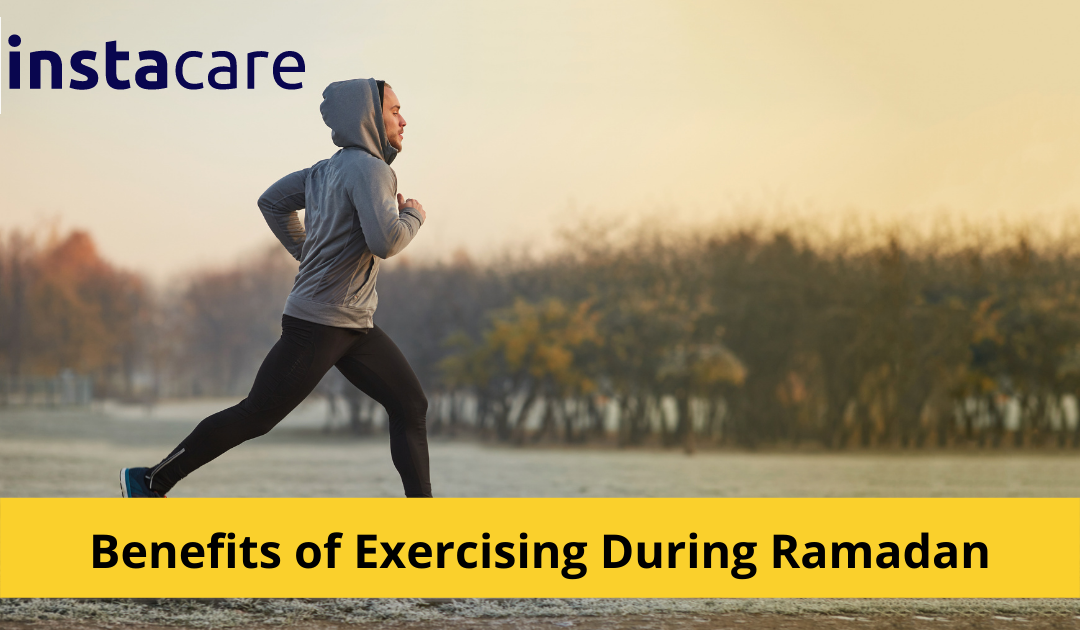Ramadan has started its full swing, and for those who don't know, it's the Islamic month when the Muslims fast through the whole day till sunset for 30 days. While fasting during the day with no food and water, you may not have enough energy to do your workout routine, and some people who want to stick to their exercise and fitness often question if they should continue their workout plan or not. And even if yes, what type of exercise or things should they do.
So, today, I am writing this article to clarify all your queries about exercising during Ramadan. So, continue reading to get your head clear.
Let’s Get First Thing Clear Can You Exercise While Fasting During Ramadan
While many people may think that exercising during Ramadan is not very healthy for your body, it's not true. The experts say that you shouldn't be lazy during fasting as there are many different benefits of being active while fasting. For the most part, exercising is alright for everybody having no severe health conditions. Light-moderate proactive tasks and activities are protected and suggested for everybody. Keep dynamic in any event when you are fasting. Try not to quit practicing, yet have a sensible active work plan.
Experts say exercising while fasting keeps our brains, muscles, and neuro motors naturally young. When we work out during fasting, it powers our body to shed fat. Our strength to fat ratio's consuming cycles is constrained by the intelligent sensory system enacted by exercise and the absence of food.
Don't Want To Exercise During Fasting? Here's When You Should Workout.
The expert proposes exercising after the Tarawih prayers in the nighttime. At that time, you have fulfilled yourself with an adequate meal and water consumption that will fuel you for the workout session afterward. At that time, you can also drink juices and different fluids during the exercise to refuel yourself. A few activities should likewise be possible in the wake of breaking the quick or not long before Suhur.
And for some, exercising right before sunset is the best time to push yourself a little more. Working out an hour before breaking the fast provides you that you'll eat in a bit of time, help you motivate yourself, and opening the short restores the body right away.
View More: How To Lose 40 Pounds In Two Months
Types Of Exercises You Should Do During Fasting
Please stay away from exercises that inflate your pulse rate by 150 per minute every time you do them. These high-intensity workouts should be avoided, especially when you are fasting and yet have to break the fast. Yet, it is encouraged to do slow or moderate workout activities. Specialists recommend energetic strolling, quiet running, cycling, broadly educating, and light machine practices at the exercise center for Ramadan.
Most importantly, eating a fair amount of food according to the balance diet measures and taking an adequate standard of fluids is essential to keep a good workout daily practice during the month. Intaking carbohydrates are empowered during Suhur, which assists with remaining enthusiastic—taking a protein-rich eating regimen after breaking the quick assists the body with restoring.
What Could Be The Length Of Your Workout Sessions?
The amount of exercise you have during fasting directly depends on your physical health condition and your activity level before Ramadan.
Here are some tips that will help you with your Ramadan workout if you’ve been sedentary beforehand.
- Start slow and promise to remain genuinely dynamic, consistently.
- Join more proactive tasks into your everyday schedules into your fundamental day-to-day schedules, for example, strolling as opposed to heading to the market.
- Utilize the stairs rather than the elevator to stay active
- Play out your everyday house tasks to keep your residing climate clean.
Conclusion
I hope this article helps you spend a healthy, active Ramadan. Ramadan Mubarak!
Please book an appointment with the best Nutritionist in Lahore, Karachi, Islamabad, and all major cities of Pakistan through InstaCare, or call our helpline at 03100002273 to find the verified doctor for your disease.











